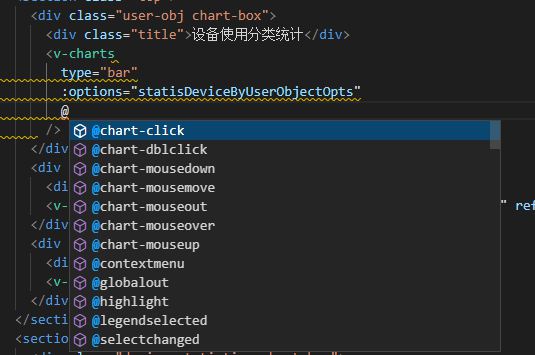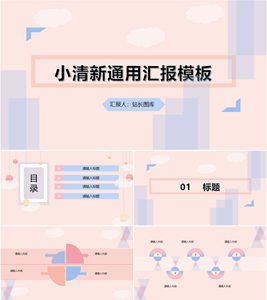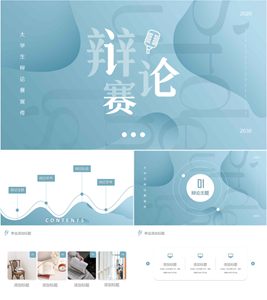聊聊vue3中echarts用什么形式封装最好
3166
项目中经常用到echarts,不做封装直接拿来使用也行,但不可避免要写很多重复的配置代码,封装稍不注意又会过度封装,丢失了扩展性和可读性。始终没有找到一个好的实践,偶然看到一篇文章,给了灵感。找到了一个目前认为用起来很舒服的封装。
思路
结合项目需求,针对不同类型的图表,配置基础的默认通用配置,例如x/y,label,图例等的样式
创建图表组件实例(不要使用id,容易重复,还需要操作dom,直接用ref获取当前组件的el来创建图表),提供type(图表类型),和options(图表配置)两个必要属性
根据传入type,加载默认的图表配置
深度监听传入的options,变化时更新覆盖默认配置,更新图表
提供事件支持,支持echart事件按需绑定交互
注意要确保所有传入图表组件的options数组都是
shallowReactive类型,避免数组量过大,深度响应式导致性能问题
目录结构
- ├─v-charts
- │ │ index.ts // 导出类型定义以及图表组件方便使用
- │ │ type.d.ts // 各种图表的类型定义
- │ │ useCharts.ts // 图表hooks
- │ │ v-charts.vue // echarts图表组件
- │ │
- │ └─options // 图表配置文件
- │ bar.ts
- │ gauge.ts
- │ pie.ts
组件代码
v-charts.vue
- <template>
- <div ref="chartRef" />
- </template>
- <script setup>
- import { PropType } from "vue";
- import * as echarts from "echarts/core";
- import { useCharts, ChartType, ChartsEvents } from "./useCharts";
- /**
- * echarts事件类型
- * 截至目前,vue3类型声明参数必须是以下内容之一,暂不支持外部引入类型参数
- * 1. 类型字面量
- * 2. 在同一文件中的接口或类型字面量的引用
- * // 文档中有说明:https://cn.vuejs.org/api/sfc-script-setup.html#typescript-only-features
- */
- interface EventEmitsType {
- <T extends ChartsEvents.EventType>(e: `${T}`, event: ChartsEvents.Events[Uncapitalize<T>]): void;
- }
- defineOptions({
- name: "VCharts"
- });
- const props = defineProps({
- type: {
- type: String as PropType<ChartType>,
- default: "bar"
- },
- options: {
- type: Object as PropType<echarts.EChartsCoreOption>,
- default: () => ({})
- }
- });
- // 定义事件,提供ts支持,在组件使用时可获得友好提示
- defineEmits<EventEmitsType>();
- const { type, options } = toRefs(props);
- const chartRef = shallowRef();
- const { charts, setOptions, initChart } = useCharts({ type, el: chartRef });
- onMounted(async () => {
- await initChart();
- setOptions(options.value);
- });
- watch(
- options,
- () => {
- setOptions(options.value);
- },
- {
- deep: true
- }
- );
- defineExpose({
- $charts: charts
- });
- </script>
- <style scoped>
- .v-charts {
- width: 100%;
- height: 100%;
- min-height: 200px;
- }
- </style>
useCharts.ts
- import { ChartType } from "./type";
- import * as echarts from "echarts/core";
- import { ShallowRef, Ref } from "vue";
- import {
- TitleComponent,
- LegendComponent,
- TooltipComponent,
- GridComponent,
- DatasetComponent,
- TransformComponent
- } from "echarts/components";
- import { BarChart, LineChart, PieChart, GaugeChart } from "echarts/charts";
- import { LabelLayout, UniversalTransition } from "echarts/features";
- import { CanvasRenderer } from "echarts/renderers";
- const optionsModules = import.meta.glob<{ default: echarts.EChartsCoreOption }>("./options/**.ts");
- interface ChartHookOption {
- type?: Ref<ChartType>;
- el: ShallowRef<HTMLElement>;
- }
- /**
- * 视口变化时echart图表自适应调整
- */
- class ChartsResize {
- #charts = new Set<echarts.ECharts>(); // 缓存已经创建的图表实例
- #timeId = null;
- constructor() {
- window.addEventListener("resize", this.handleResize.bind(this)); // 视口变化时调整图表
- }
- getCharts() {
- return [...this.#charts];
- }
- handleResize() {
- clearTimeout(this.#timeId);
- this.#timeId = setTimeout(() => {
- this.#charts.forEach(chart => {
- chart.resize();
- });
- }, 500);
- }
- add(chart: echarts.ECharts) {
- this.#charts.add(chart);
- }
- remove(chart: echarts.ECharts) {
- this.#charts.delete(chart);
- }
- removeListener() {
- window.removeEventListener("resize", this.handleResize);
- }
- }
- export const chartsResize = new ChartsResize();
- export const useCharts = ({ type, el }: ChartHookOption) => {
- echarts.use([
- BarChart,
- LineChart,
- BarChart,
- PieChart,
- GaugeChart,
- TitleComponent,
- LegendComponent,
- TooltipComponent,
- GridComponent,
- DatasetComponent,
- TransformComponent,
- LabelLayout,
- UniversalTransition,
- CanvasRenderer
- ]);
- const charts = shallowRef<echarts.ECharts>();
- let options!: echarts.EChartsCoreOption;
- const getOptions = async () => {
- const moduleKey = `./options/${type.value}.ts`;
- const { default: defaultOption } = await optionsModules[moduleKey]();
- return defaultOption;
- };
- const setOptions = (opt: echarts.EChartsCoreOption) => {
- charts.value.setOption(opt);
- };
- const initChart = async () => {
- charts.value = echarts.init(el.value);
- options = await getOptions();
- charts.value.setOption(options);
- chartsResize.add(charts.value); // 将图表实例添加到缓存中
- initEvent(); // 添加事件支持
- };
- /**
- * 初始化事件,按需绑定事件
- */
- const attrs = useAttrs();
- const initEvent = () => {
- Object.keys(attrs).forEach(attrKey => {
- if (/^on/.test(attrKey)) {
- const cb = attrs[attrKey];
- attrKey = attrKey.replace(/^on(Chart)?/, "");
- attrKey = `${attrKey[0]}${attrKey.substring(1)}`;
- typeof cb === "function" && charts.value?.on(attrKey, cb as () => void);
- }
- });
- };
- onBeforeUnmount(() => {
- chartsResize.remove(charts.value); // 移除缓存
- });
- return {
- charts,
- setOptions,
- initChart,
- initEvent
- };
- };
- export const chartsOptions = <T extends echarts.EChartsCoreOption>(option: T) => shallowReactive<T>(option);
- export * from "./type.d";
type.d.ts
- /*
- * @Description:
- * @Version: 2.0
- * @Autor: GC
- * @Date: 2022-03-02 10:21:33
- * @LastEditors: GC
- * @LastEditTime: 2022-06-02 17:45:48
- */
- // import * as echarts from 'echarts/core';
- import * as echarts from 'echarts'
- import { XAXisComponentOption, YAXisComponentOption } from 'echarts';
- import { ECElementEvent, SelectChangedPayload, HighlightPayload, } from 'echarts/types/src/util/types'
- import {
- TitleComponentOption,
- TooltipComponentOption,
- GridComponentOption,
- DatasetComponentOption,
- AriaComponentOption,
- AxisPointerComponentOption,
- LegendComponentOption,
- } from 'echarts/components';// 组件
- import {
- // 系列类型的定义后缀都为 SeriesOption
- BarSeriesOption,
- LineSeriesOption,
- PieSeriesOption,
- FunnelSeriesOption,
- GaugeSeriesOption
- } from 'echarts/charts';
- type Options = LineECOption | BarECOption | PieECOption | FunnelOption
- type BaseOptionType = XAXisComponentOption | YAXisComponentOption | TitleComponentOption | TooltipComponentOption | LegendComponentOption | GridComponentOption
- type BaseOption = echarts.ComposeOption<BaseOptionType>
- type LineECOption = echarts.ComposeOption<LineSeriesOption | BaseOptionType>
- type BarECOption = echarts.ComposeOption<BarSeriesOption | BaseOptionType>
- type PieECOption = echarts.ComposeOption<PieSeriesOption | BaseOptionType>
- type FunnelOption = echarts.ComposeOption<FunnelSeriesOption | BaseOptionType>
- type GaugeECOption = echarts.ComposeOption<GaugeSeriesOption | GridComponentOption>
- type EChartsOption = echarts.EChartsOption;
- type ChartType = 'bar' | 'line' | 'pie' | 'gauge'
- // echarts事件
- namespace ChartsEvents {
- // 鼠标事件类型
- type MouseEventType = 'click' | 'dblclick' | 'mousedown' | 'mousemove' | 'mouseup' | 'mouseover' | 'mouseout' | 'globalout' | 'contextmenu' // 鼠标事件类型
- type MouseEvents = {
- [key in Exclude<MouseEventType,'globalout'|'contextmenu'> as `chart${Capitalize<key>}`] :ECElementEvent
- }
- // 其他的事件类型极参数
- interface Events extends MouseEvents {
- globalout:ECElementEvent,
- contextmenu:ECElementEvent,
- selectchanged: SelectChangedPayload;
- highlight: HighlightPayload;
- legendselected: { // 图例选中后的事件
- type: 'legendselected',
- // 选中的图例名称
- name: string
- // 所有图例的选中状态表
- selected: {
- [name: string]: boolean
- }
- };
- // ... 其他类型的事件在这里定义
- }
- // echarts所有的事件类型
- type EventType = keyof Events
- }
- export {
- BaseOption,
- ChartType,
- LineECOption,
- BarECOption,
- Options,
- PieECOption,
- FunnelOption,
- GaugeECOption,
- EChartsOption,
- ChartsEvents
- }
options/bar.ts
- import { BarECOption } from "../type";
- const options: BarECOption = {
- legend: {},
- tooltip: {},
- xAxis: {
- type: "category",
- axisLine: {
- lineStyle: {
- // type: "dashed",
- color: "#C8D0D7"
- }
- },
- axisTick: {
- show: false
- },
- axisLabel: {
- color: "#7D8292"
- }
- },
- yAxis: {
- type: "value",
- alignTicks: true,
- splitLine: {
- show: true,
- lineStyle: {
- color: "#C8D0D7",
- type: "dashed"
- }
- },
- axisLine: {
- lineStyle: {
- color: "#7D8292"
- }
- }
- },
- grid: {
- left: 60,
- bottom: "8%",
- top: "20%"
- },
- series: [
- {
- type: "bar",
- barWidth: 20,
- itemStyle: {
- color: {
- type: "linear",
- x: 0,
- x2: 0,
- y: 0,
- y2: 1,
- colorStops: [
- {
- offset: 0,
- color: "#62A5FF" // 0% 处的颜色
- },
- {
- offset: 1,
- color: "#3365FF" // 100% 处的颜色
- }
- ]
- }
- }
- // label: {
- // show: true,
- // position: "top"
- // }
- }
- ]
- };
- export default options;
项目中使用
index.vue
- <template>
- <div>
- <section>
- <div class="device-statistics chart-box">
- <div>累计设备接入统计</div>
- <v-charts
- type="bar"
- :options="statisDeviceByUserObjectOpts"
- @selectchanged="selectchanged"
- @chart-click="handleChartClick"
- />
- </div>
- <div class="coordinate-statistics chart-box">
- <div>坐标数据接入统计</div>
- <v-charts type="bar" :options="statisCoordAccess" />
- </div>
- </section>
- </div>
- </template>
- <script setup>
- import {
- useStatisDeviceByUserObject,
- } from "./hooks";
- // 设备分类统计
- const { options: statisDeviceByUserObjectOpts,selectchanged,handleChartClick } = useStatisDeviceByUserObject();
- </script>
/hooks/useStatisDeviceByUserObject.ts
- export const useStatisDeviceByUserObject = () => {
- // 使用chartsOptions确保所有传入v-charts组件的options数据都是## shallowReactive浅层作用形式,避免大量数据导致性能问题
- const options = chartsOptions<BarECOption>({
- yAxis: {},
- xAxis: {},
- series: []
- });
- const init = async () => {
- const xData = [];
- const sData = [];
- const dicts = useHashMapDics<["dev_user_object"]>(["dev_user_object"]);
- const data = await statisDeviceByUserObject();
- dicts.dictionaryMap.dev_user_object.forEach(({ label, value }) => {
- if (value === "6") return; // 排除其他
- xData.push(label);
- const temp = data.find(({ name }) => name === value);
- sData.push(temp?.qty || 0);
- // 给options赋值时要注意options是浅层响应式
- options.xAxis = { data: xData };
- options.series = [{ ...options.series[0], data: sData }];
- });
- };
- // 事件
- const selectchanged = (params: ChartsEvents.Events["selectchanged"]) => {
- console.log(params, "选中图例了");
- };
- const handleChartClick = (params: ChartsEvents.Events["chartClick"]) => {
- console.log(params, "点击了图表");
- };
- onMounted(() => {
- init();
- });
- return {
- options,
- selectchanged,
- handleChartClick
- };
- };
使用时输入@可以看到组件支持的所有事件:

本文网址:https://www.zztuku.com/index.php/detail-13839.html
站长图库 - 聊聊vue3中echarts用什么形式封装最好
申明:本文转载于《掘金社区》,如有侵犯,请 联系我们 删除。
















您还没有登录,请 登录 后发表评论!
提示:请勿发布广告垃圾评论,否则封号处理!!